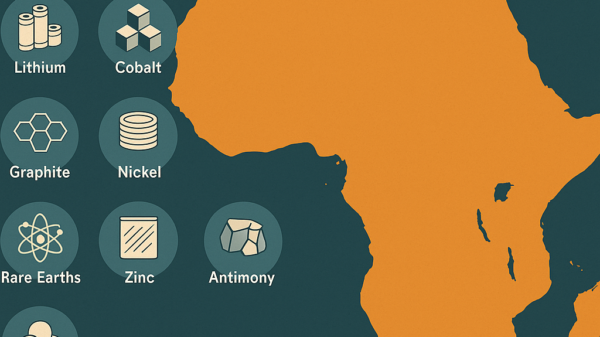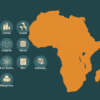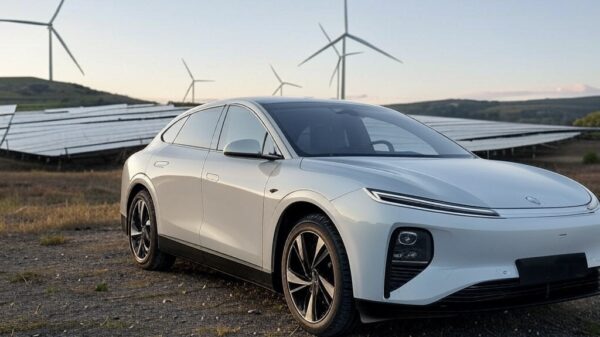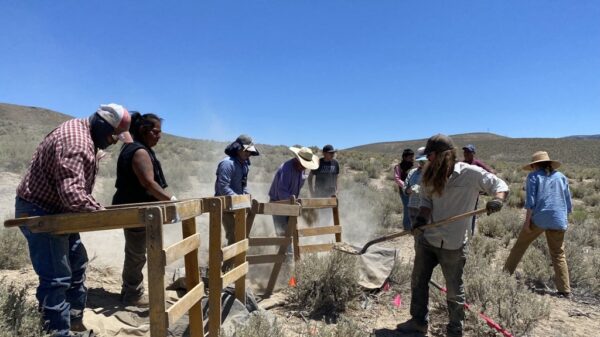POSCO Holdings (KRX: 005490) finished construction on South Korea’s first lithium hydroxide plant in Yulchon Industrial Complex in Gwangyang, South Jeolla Province.
The company said on Wednesday that the new plant is an element of the company’s strategy to establish a battery material value chain. The chain includes securing and processing battery materials like lithium and nickel, which also includes a recycling program for used batteries.
POSCO-Pilbara Lithium Solution Co., a joint venture established in 2021 between POSCO and Australia’s lithium mining company Pilbara Minerals Ltd (ASX: PLS), will operate the lithium hydroxide plant with an annual production capacity of 21,500 tons.
The company intends to build a second lithium hydroxide plant with the same production capacity by 2024. Together, these plants will produce a total of 43,000 tons of lithium hydroxide annually, which can power one million electric vehicles.
In June, it launched the lithium hydroxide plant project with an estimated investment of USD$451 million. The company expects the plant to be fully operational by 2025. This strategic initiative positions POSCO to meet the increasing demand for electric vehicle battery materials and align with the U.S. Inflation Reduction Act (IRA), which offers tax incentives to EV manufacturers and suppliers who procure materials from partner countries in the U.S.
POSCO is eligible for IRA benefits by sourcing iron ore from Australia or Argentina, then processing it to create lithium hydroxide in Korea. Instead of relying on imports for lithium hydroxide, the company has developed technology to extract it from lithium ore.
In a significant move to strengthen its lithium production capabilities, the the company announced an additional investment of USD$1.09 billion and acquired lithium reserves in Argentina in 2018 for USD$280 million. Two years later, an assessment revealed reserves exceeding initial estimates.
Last year, the company declared a comprehensive investment plan of USD$20 billion for rechargeable battery projects, including acquiring stakes in battery material firms, mineral mines, and related facilities. Its goal is to establish a self-sufficient battery metal supply chain and reduce dependence on Chinese companies.
The company’s holdings in Argentina are a big part of that initiative.

POSCO Chemical`s material Gwangyang Plant. Image from POSCO Chemical Co.
Read more: Lithium South Development first production well installed at Hombre Muerto lithium project
Read more: Lithium South Development expands production goals, updates PEA on Hombre Muerto lithium project
Argentina is a key part of POSCO’s supply chain
POSCO’s extensive lithium project is located in the Salar del Hombre Muerto region, which covers both Salta and Catamarca provinces in Argentina.
In 2018, the company significantly expanded its lithium presence by acquiring brine tenements in Argentina. The company is currently building commercial brine lithium plants in the region, with a combined annual capacity of 50,000 tonnes.
It also developed lithium extraction technology in 2010 and began production after completing a feasibility study.
POSCO’s properties in the Salta province border some of the world’s largest companies, including Livent Corporation (NYSE: LTHM). Also, its $840 million lithium plant neighbours Lithium South Development Company‘s (TSXV: LIS) (OTCQB: LISMF) (Frankfurt: OGPQ) Hombre Muerto North property. In 2023, Lithium South boosted its lithium resource by 175 percent.
Lithium South Development Corporation is a sponsor of Mugglehead news coverage
.
Follow Joseph Morton on Twitter
joseph@mugglehead.com














